May 27, 2019 - Comments Off on April 2019: DRF releases Annual Report 2018
April 2019: DRF releases Annual Report 2018
DRF is extremely proud to announce the launch of its annual report for the year 2018 in which we've captured the work we've done throughout the year, with our partners and beneficiaries. The report highlights our achievements throughout the year 2018 and what we plan to achieve in the years to come. The report also gives us a comprehensive overview of our beneficiaries and the themes we cover with them through our work.
Click here to read the full report.
Release of "Fostering Open Spaces in Pakistan - combating gender specific threats to women's activism online" Report
In collaboration with International Media Support, DRF undertook a project entitled ‘Fostering Open Spaces in Pakistan- Combating Gender Specific Threats to Women's Activism Online’ which focused on women journalists and information practitioners’s experience of existing in the online sphere and a study was put together highlighting the chasm between the permeation of online spaces by men and by women.
This Report was disseminated at the digital security workshops conducted by DRF in Lahore, Karachi, Quetta, Peshawar and Islamabad and will be further distributed amongst the necessary stakeholders. Click here to read the report.
Hamara Internet Session in Fatima Jinnah Women University, Rawalpindi
DRF conducted a seminar on "Our Right to Safe Online and Offline Spaces" at Fatima Jinnah Women University, Rawalpindi on April 24th, 2019 where discussed the vulnerabilities of young men and women were face in online spaces and focusing on the current legislation regarding offline and online harassment to have a much needed debate around safe spaces on campus.
DRF held Digital Safety Trainings across Pakistan
Under the head of Fostering Open Spaces in Pakistan project, a series of customised digital safety trainings were conducted in Karachi, Quetta, Peshawar and Islamabad for women journalists, online civic activists and human rights defenders to cater to their concerns which were heard out via a series of seminars that were previously conducted in the same vein.
The trainings were aimed at improving the participants understanding of online threats and risks and equipping them with tools to keep themselves secure and vigilant against such possibilities which could corrupt their data or gadgets.
DRF at Capacity Building Workshop of Policy Makers and Duty Bearers by NCHR and UNESCO
DRF attended a capacity building workshop of Policy Makers and Duty Bearers on 19th April, on Sustainable Goal Target 16.10.1 by NCHR and UNESCO. The consultation focused on freedom of expression and safety of journalists.
Hamara Internet in Beaconhouse National University, Lahore
Digital Rights Foundation conducted the seminar "Our Right to Sage Online and Offline Spaces" at Beaconhouse National University (BNU) on Monday, April 29th, 2019 where we discussed the vulnerabilities young men and women face in online spaces and focusing on the current legislation regarding offline and online harassment to have a much needed debate around safe spaces on campus.
Thirteenth Humanities and Social Sciences Conference at LUMS on April 11, 2019
DRF presented its research on the roundtable “Sexual Harassment and #MeToo” as part of the Humanities and Social Sciences Conference. Zainab and Shmyla presented regarding online harassment law and the risks that inhere in these spaces. The roundtable was followed by a question and answer session that explored the future of the #MeToo movement in Pakistan.
LUMS Amnesty International Panel on “Human Rights and #MeToo” on April 19, 2019
Shmyla represented DRF in Amnesty International’s Human Rights conference at LUMS. The Panel on the human rights implications of #MeToo with Sabahat Zakariya delved into the law around harassment and the efficacy of call-out culture.
DRF released the third episode of e-Baithak podcast
DRF released the third episode of e-Baithak podcast, “Where we discover #GirlsinICT Day and TikTok”, marking Girls in ICT Day by having an in-depth discussion about women’s participation in tech fields and the issue of access to ICTs for women and young girls. DRF also discussed the phenomenon that is TikTok in our lighter segment.
Listen to the podcast here.
Nighat Dad spoke on surveillance capitalism in Naomi Klein’s class in Rutgers University
Seminar on Online Harassment in Punjab University on April 2, 2019
Zainab and Shmyla conducted a seminar on sexual harassment online and the need for online safe spaces Punjab University. The seminar explored questions of consent and the legal definition of harassment, both on campus and off it.
Panel discussion by HRCP on media freedoms
Shmyla Khan represented DRF at a panel discussion titled “Speaking truth to power’: Attacks on the journalist community” at the Human Rights Commission of Pakistan (HRCP) on April 7, 2019. The panel was attended by senior journalists such as Najam Sethi, Marvi Memon, Munize Jahangir and Mehmal Sarfraz. There was an in depth discussion about censorship in the media and the insecurity faced by journalists in Pakistan.
National Feminist Convening on April 6 - 7th organised by Shirkat Gah
DRF participated in Shirkat Gah’s annual National Feminist Convening, which focused on the future of the feminist movement and the majar themes of the women’s rights movement.
Members of Network of Women Journalists for Digital Rights continued to pen blogs
Members of DRF's Network of Women Journalists for Digital Rights continued to share articles and blogs on digital rights issues which can be found on the Hamara Internet website here. The Network advocates for women and other minority groups to have safe access to online platforms, where they can exercise their constitutional right of free speech without facing constant threats. The Network members pen articles to document these threats, bring forward issues in the implementation of legislation to prevent and protect women journalists from gender-based discrimination and sexual harassment both online and offline and also advocate their access to effective remedies.
Published by: Digital Rights Foundation in Newsletter


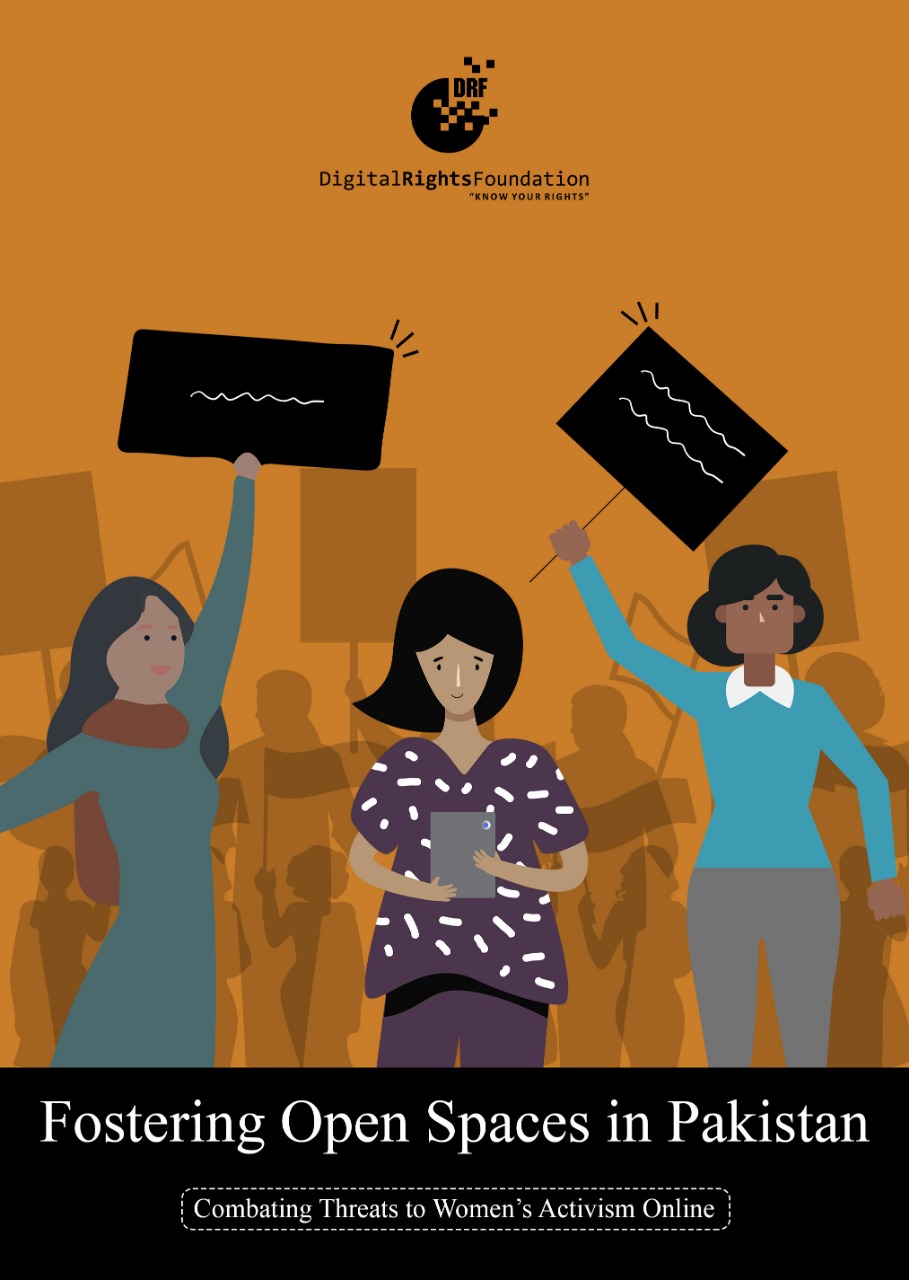
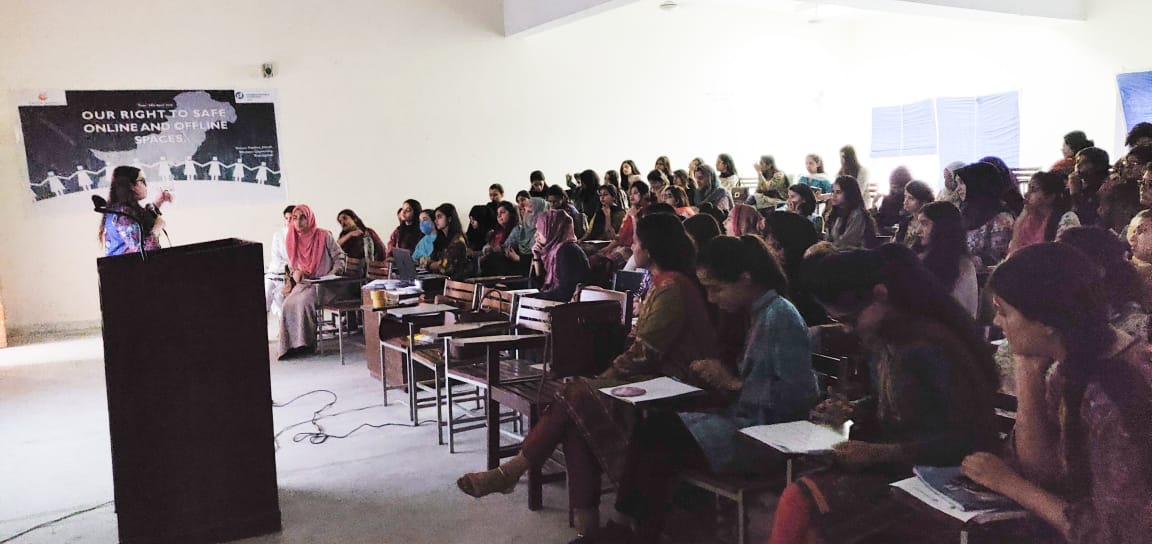

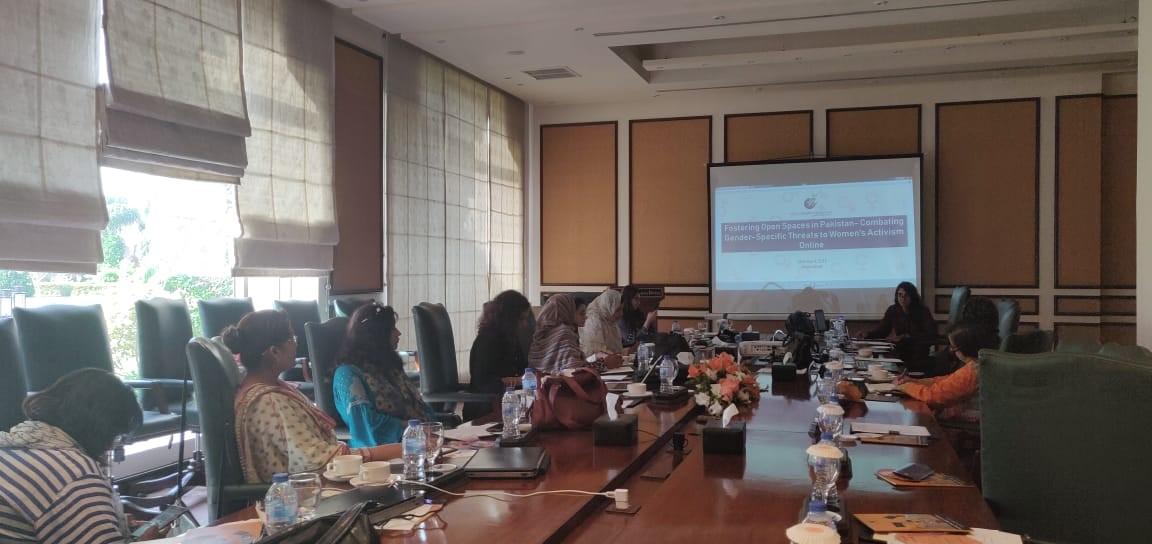
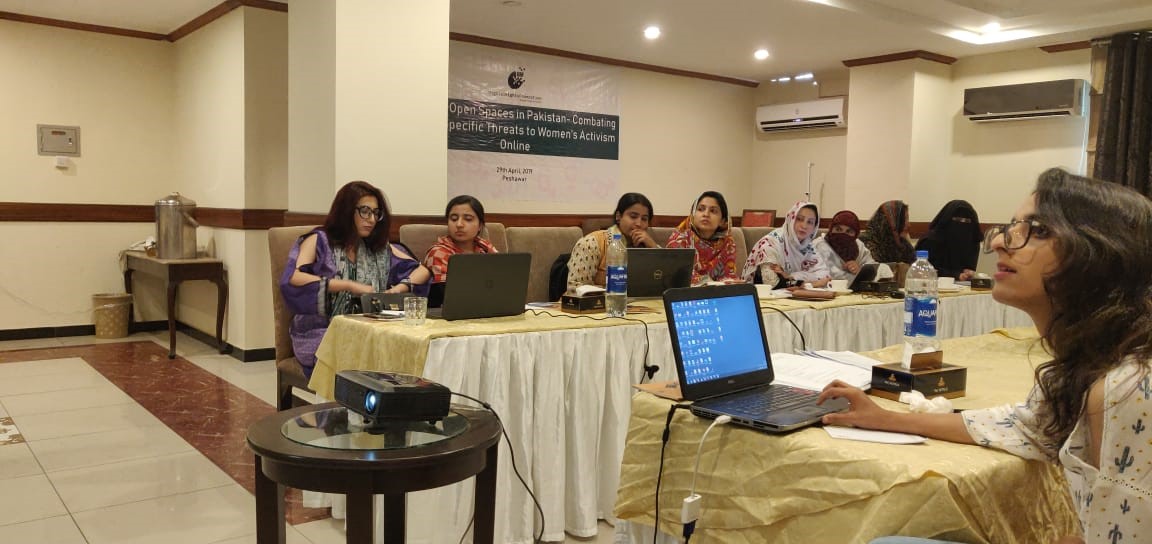
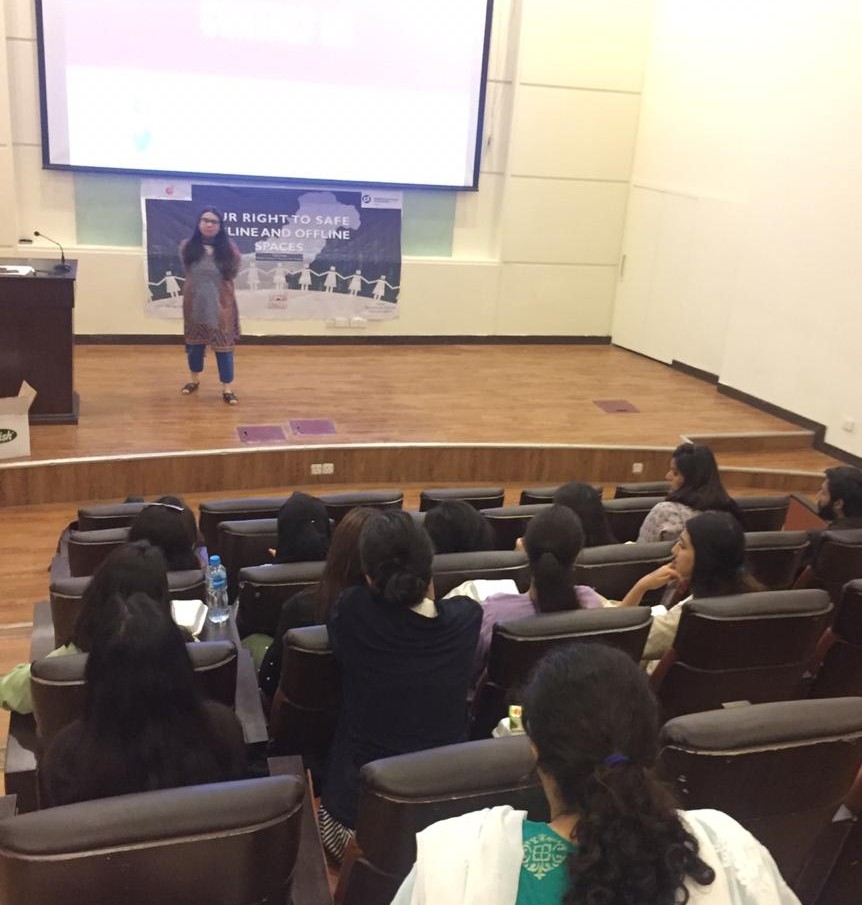
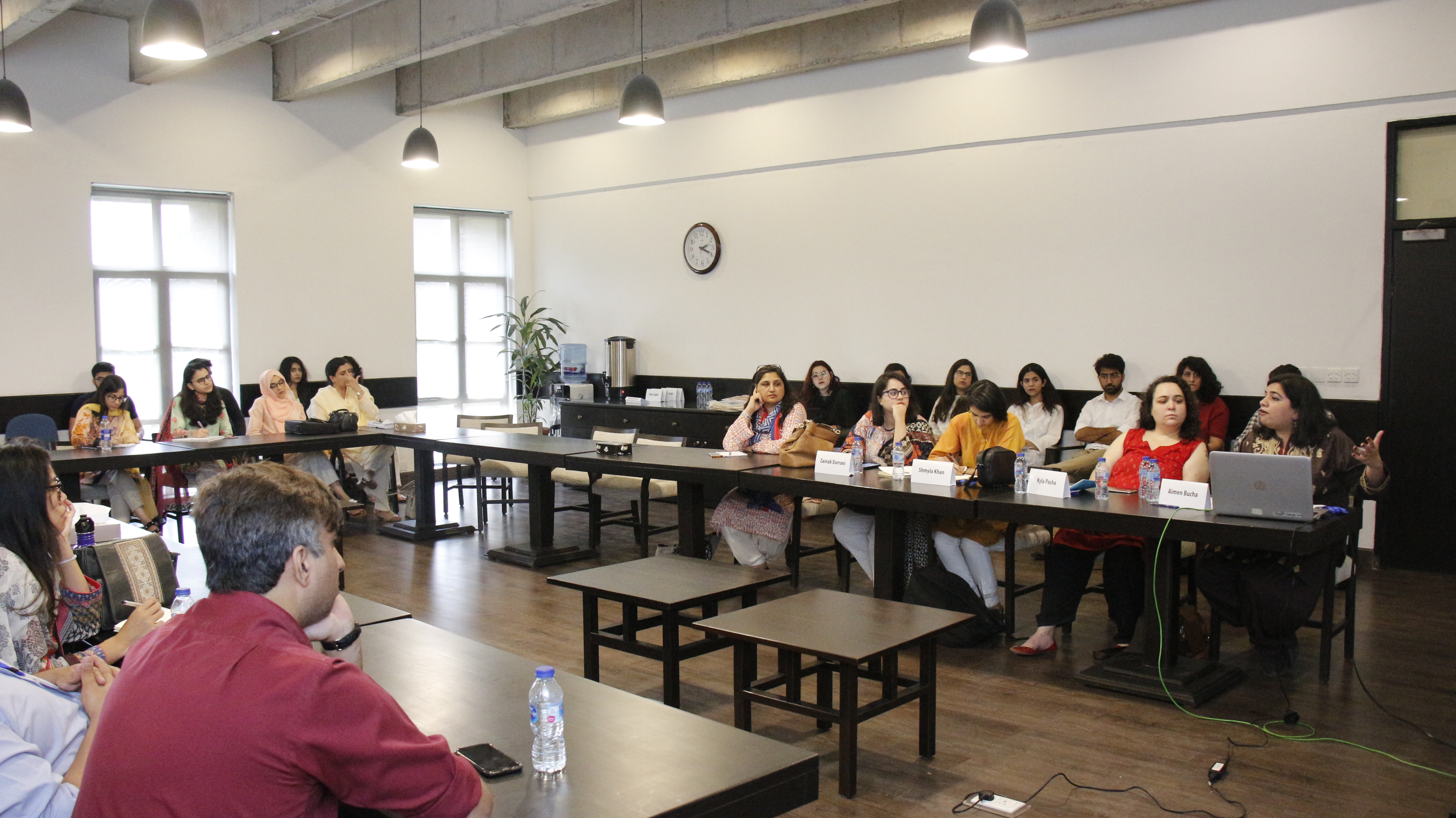
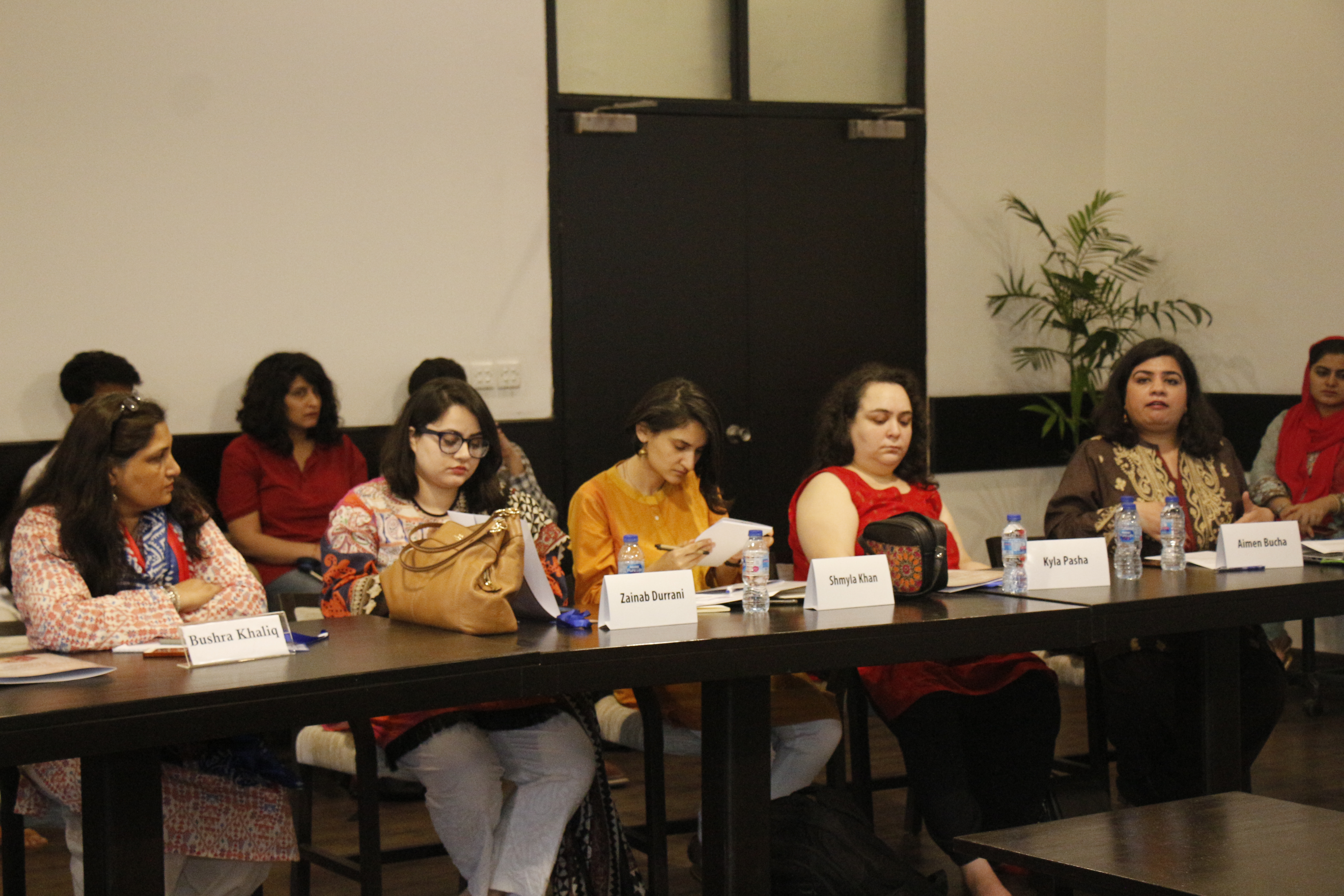
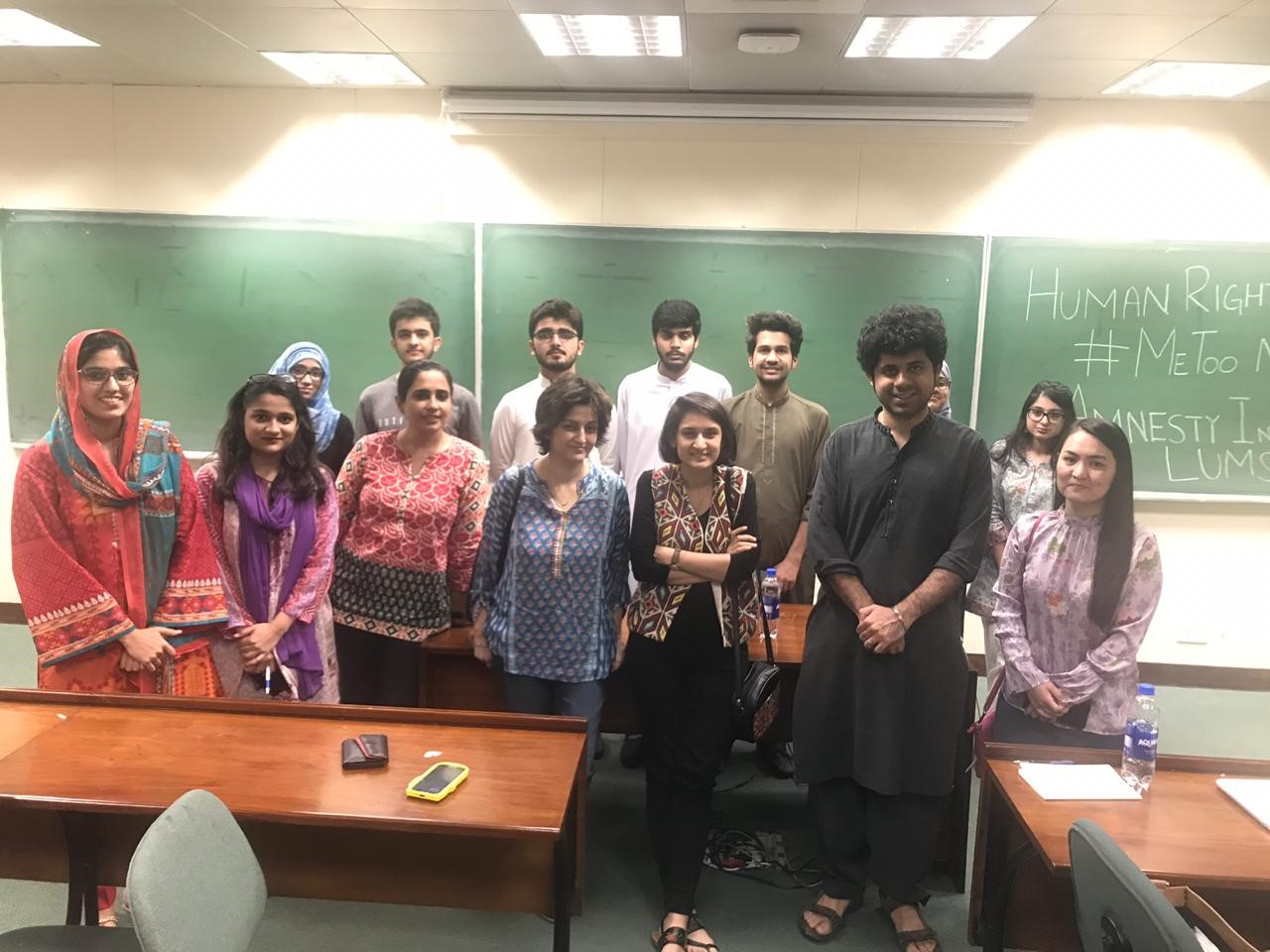
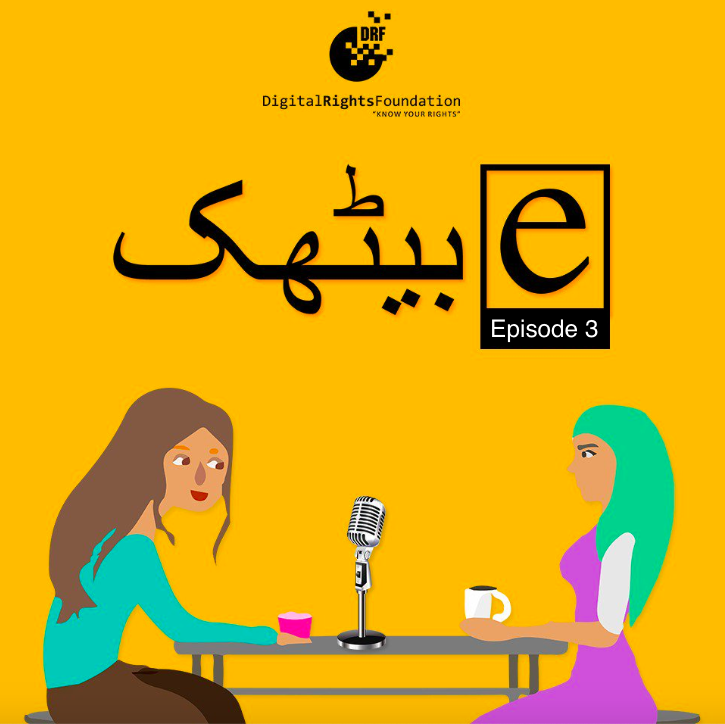





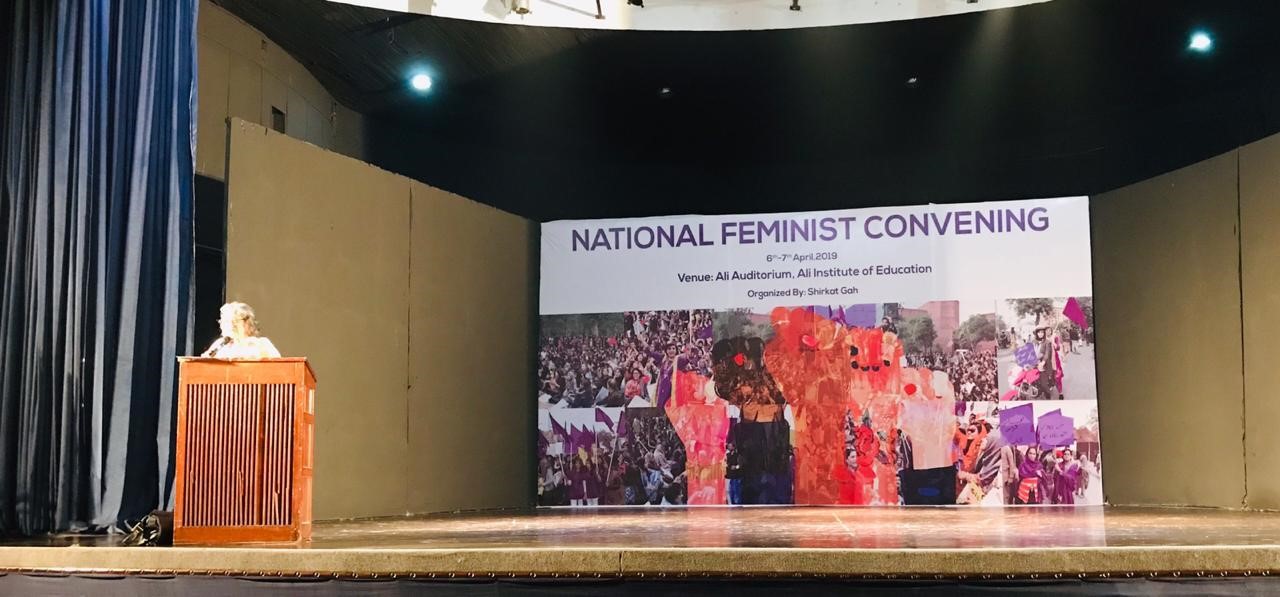

Comments are closed.